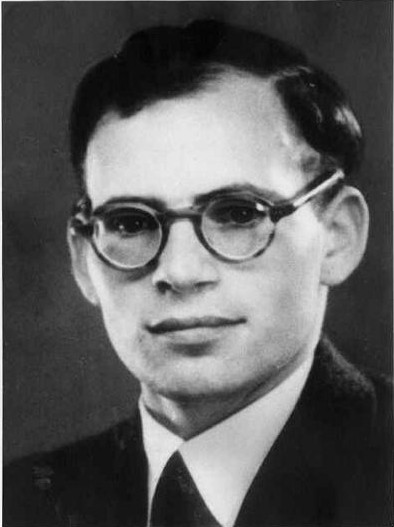Hans Leipelt was born in Vienna on 18 July 1921. His mother came from a Christian family of Jewish descent. Hans and his sister Maria, who was born after their move to Hamburg in 1925, were raised Protestant. In 1935, the anti-Semitic Nuremberg Race Laws stigmatized the siblings as “first-degree Jewish half-breeds” and the mother as a “privileged full Jew”. After the death of Hans Leipelt`s father, the only “Aryan” family member, in 1942, they were left without any protection.
After performing compulsory Reichsarbeitsdienst (Reich Labour Service) Hans Leipelt joined the Wehrmacht and took part in the invasion of Poland in 1939 and the French campaign in 1940. In June 1940 he was decorated for his service but two months later he was dishonourably discharged from the Wehrmacht because he was labeled “half-Jewish”. This exclusion hit him deeply.
In 1940 Hans Leipelt began studying chemistry at the University of Hamburg. In 1941 he moved to Munich, where he found protection against anti-Semitism at the Chemical Institute under Nobel Prize winner Heinrich Wieland. At the institute he met a circle of like-minded people. They openly discussed literature and modern art and listened to forbidden music and foreign radio programs.
On 18 February 1943, Leipelt received a copy of the sixth leaflet of the White Rose and showed it to his girlfriend Marie-Luise Jahn. Until then, they had been unfamiliar with the White Rose and its acts of resistance. Both decided to copy and distribute the leaflet. During the Easter holidays they brought copies to friends in Hamburg.
On 8 October 1943, Hans Leipelt was collecting money for the destitute family of Professor Kurt Huber, who had been sentenced to death. The collection of money was reported to the Gestapo and he was arrested. Further arrests among friends in Munich and Hamburg followed. Leipelt’s sister, Maria, and mother, Katharina, were also arrested. Katharina Leipelt took her own life in a cell in Fuhlsbüttel police prison on 9 December 1943.
After a year in pre-trial detention, the trial of Hans Leipelt and six co-defendants took place on 13 October 1944 in Donauwörth before the Volksgerichtshof (People’s Court ). Hans Leipelt was sentenced to death. He was executed at the Munich-Stadelheim prison on 29 January 1945.
